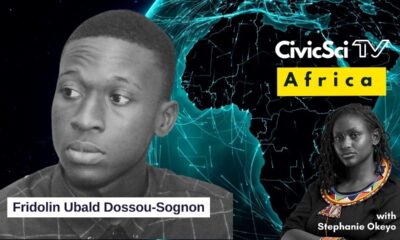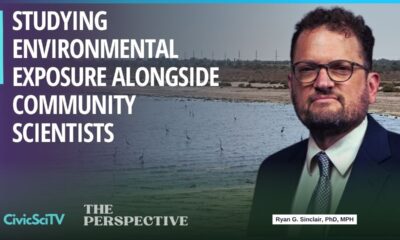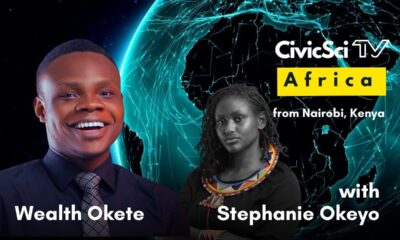Stories in Science Special Series
The Inner City Scientist

By Ketema Paul, PhD – Associate Professor at UCLA
[dropcap]I[/dropcap] have known I wanted to be a scientist since I was a kid. My earliest memory of wanting to be a scientist was 7 years old. Science was my favorite class and I thought it was cool. My mom told me that I could be whatever I wanted to be, and that if I wanted to be a scientist, then I would be one. Three years later, my mom passed suddenly from a brain aneurism. Scientists come from everywhere, but not many came from my Shaw neighborhood in Washington, D.C. in the 80s. It is a beautiful neighborhood, but in those days, it was infested with drugs and violence. The odds of a black kid raised by a single dad in the middle of a crime-infested neighborhood becoming a competitive scientist were not great. Fortunately for me, I never knew that.
I was not the best student, but I excelled at math and science. I was undisciplined. Most teachers had neither the time nor the patience to deal with a kid who aced tests, but disrupted the class regularly. But there were those who did, and they defined my path toward becoming a scientist. In Paul Lawrence Dunbar High School in Washington, D.C, there were about five of them. Their patience was unflappable. I could try every shenanigan in the book, but they refused to give up on me. In inner city Washington, D.C. in the 80s, they had every problem imaginable in their classrooms, but they still put in extra time to prevent me from throwing away my abilities. These are the people who enrich our pipeline of promising scientists.
But there was another motivation also. The teachers who did not believe in me. The teachers who told me that I would never become a scientist. The teachers who told me that I didn’t have what it takes and that I was too undisciplined to achieve anything of substance in life. These teachers also drove me. They drove me to prove them wrong. They drove me to show them that they had no idea what they were talking about. I have not allowed these kinds of people to discourage me; but I have created a place where their doubts become fuel for my goals. And I thoroughly enjoy proving them wrong.
It is important to recognize that discovery is paramount, but teaching and training is the only way to sustain discovery.
I have had the great fortune of being taught and trained by outstanding scientists. These mentors did not care about my past, or my challenges, or my race, or my economic status. They recognized my potential and they committed to helping me realize it. They made sacrifices in their own careers to train bright and talented students. These are the people who sustain science. Discovery is paramount, and those who make the great discoveries deserve the accolades that follow. However, the ability to sustain your craft by finding and training the students to become the best is a thankless, but extremely rewarding endeavor. It is one to which I have dedicated my career.
More importantly, I seek out and train bright students from traditionally underrepresented groups. In order for biomedical science to serve the public at large, it must have representation from the public at large. It is critical that students from underrepresented backgrounds that have the aptitude to be competitive in the biomedical science be exposed to innovative research whenever possible. In order to expand our pipeline of future scientists, we must make sacrifices. It is important to recognize that discovery is paramount, but teaching and training is the only way to sustain discovery.
Learn More about Dr. Paul’s Research by clicking HERE.
Photo by evan p. cordes on Flickr | Some rights reserved
The CS Media Lab is a Boston-anchored civic science news collective with local, national and global coverage on TV, digital print, and radio through CivicSciTV, CivicSciTimes, and CivicSciRadio. Programs include Questions of the Day, Changemakers, QuickTake, Consider This Next, Stories in Science, Sai Resident Collective and more.

-
Audio Studio1 month ago
“Reading it opened up a whole new world.” Kim Steele on building her company ‘Documentaries Don’t Work’
-
 Civic Science Observer1 week ago
Civic Science Observer1 week ago‘Science policy’ Google searches spiked in 2025. What does that mean?
-
Civic Science Observer1 month ago
Our developing civic science photojournalism experiment: Photos from 2025
-
Civic Science Observer1 month ago
Together again: Day 1 of the 2025 ASTC conference in black and white
Contact
Menu
Designed with WordPress
























